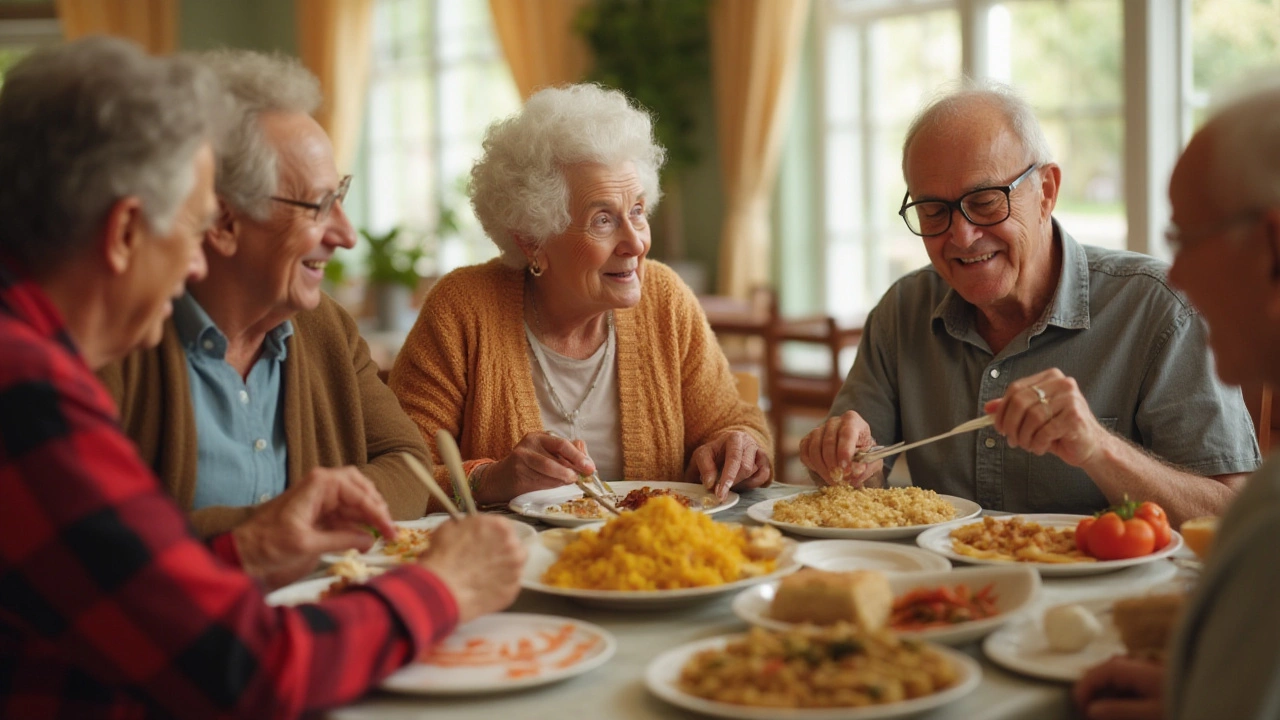Senior Food Program: What It Is and How It Helps Your Community
If you or a loved one are over 60 and worry about getting a healthy meal every day, you’re not alone. Senior food programs exist to fill that gap, delivering nutritious meals right to the door or offering a safe place to eat. These services aren’t just about calories—they provide social contact, medication reminders, and a sense of dignity.
How to Locate a Senior Food Program Near You
First step? Search online for "senior meals" plus your city or district. In most Indian towns, the local municipal office or district social welfare department runs a list. You can also call the nearest community health centre; they usually have a liaison for elder care. If you prefer a quick phone call, dial the state’s senior citizen helpline (often 1800‑xxx‑xxxx). The operator can confirm whether you qualify for a free or subsidized meal plan. Qualification usually means being 60+ years old, having a low income, or living alone.
Many NGOs partner with government schemes like the National Programme for Health Care of the Elderly (NPHCE). Check websites of groups such as HelpAge India, Seva Mandir, or local faith‑based charities. They often post schedules, volunteer contacts, and registration forms. Don’t forget the power of word‑of‑mouth. Ask neighbours, relatives, or a local priest—people who understand your area’s resources can point you to hidden options.
Getting Started: Registration and What to Expect
Once you’ve identified a program, the registration is usually a short form. You’ll need basic details: name, age, address, and a proof of residence (like a utility bill). Some programs ask for a recent health check‑up report to tailor meals to medical needs, such as diabetes‑friendly or low‑salt options.
After registration, most services start with a weekly delivery of a hot, balanced meal—think dal, veggies, chapati, and a fruit. If the program runs a community centre, you might be invited to eat there twice a week, which adds a social element. Volunteers often check in, ask how you’re feeling, and note any dietary changes.
Pay attention to the schedule. Some programs deliver on weekdays only, while others include weekends. If you need extra meals for a holiday, ask about special arrangements early—they often have a “festive menu” option.
**Tips for Making the Most of Your Senior Food Program**
- Keep a simple log of what you eat each day. It helps you and the program track nutrition.
- Share feedback. If the meals are too salty or you need more protein, let the coordinator know. Most programs adjust quickly.
- Engage with volunteers. A quick chat can turn a delivery into a friendship, reducing loneliness.
- Invite a family member to join you at a community‑centre meal once a month. It strengthens bonds and shows the program’s impact.
- Consider paying forward. If you’re able, a small cash tip or a donation of fresh vegetables helps keep the service running.
For volunteers, the steps are just as straightforward. Sign up on the program’s website or contact the local NGO’s coordinator. Training usually lasts a few hours—learning how to handle food safely, respect elder privacy, and spot health concerns.
Whether you’re a senior looking for a reliable meal source or a community member wanting to give back, senior food programs are a win‑win. They guarantee that elders receive the nutrition they need while fostering community ties that matter.
Ready to get started? Grab your phone, find the nearest senior meal service, and take that first step toward a healthier, more connected life.
Discover Virginia's Senior Food Programs: Essential Support for Seniors
Virginia offers a variety of senior food programs aimed at addressing the nutritional needs of the elderly community. These programs focus on providing healthy and balanced meals to ensure seniors maintain good health. From organized food banks to home delivery services, eligible participants receive essential nutrition without the burden of sourcing it themselves. Understanding the eligibility criteria and application process can help more seniors benefit from these initiatives. With community support, these programs continue to thrive, promoting both health and social interaction among seniors.
Read More